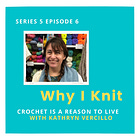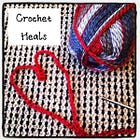Mental Health Reasons I May Not Read Your Writing ... and Please Write It Anyway
Tips for worrying less about likes, comments, shares, subscribers, etc. etc. etc. ... and self-care tips as a reader
I have seen a lot of conversations from writers, on Substack and elsewhere, about negative feelings they experience when they don’t get the validation of likes, comments, reads, opens, etc. And how this impacts their ability/desire/motivation to write. Believe me, I get it, but having been a full-time writer for two decades, I’ve learned a few things about how best to cope with this for the sake of my own mental health. And being an online reader for even longer, as well as someone with chronic recurring major (sometimes double) depression, I’m here to say that more often than not, if I’m not reading your stuff, it really is me not you.

Mental Health Reasons I May Not Read Your Work
It’s so easy to assume as a writer that there’s something you’re doing “wrong” if people aren’t reading your work en masse. Maybe it’s the quality or type of writing, maybe it’s the time or day that you post, maybe it’s your lack of social or professional networking circles, maybe it’s that you hate marketing … Sure, maybe. If this is your career, you might look at all of those things. But honestly, if I’m not reading your work - especially if I have subscribed to it or am “following” you or whatnot … chances are that it’s got a lot more to do with me than it does with you.
I am a pretty voracious reader including of the Substack newsletters that I subscribe to. But I may not open or finish or like or comment on your work at any given time because of the following symptoms of my recurrent depression:
Lack of physical energy and time. This is the number one reason that I might not tune in. If I can barely get out of bed then I have to really limit where I’m giving my energy to just in order to function as an adult human. Lack of energy means lack of time because I’m sleeping more hours a day than I’m not so in those waking hours I have to prioritize other things even if I don’t want to - like showering and walking my dogs.
Lack of emotional energy. I may have the physical energy to lay in bed and read through your writing … but I may lack the emotional energy. I may simply not be able to read about a deep, heavy topic because it just feels too hard. I have so little emotional energy that I have to protect what I do have. In other words, I just don’t have enough spoons to give.
Indecision as a symptom. Everyone’s mental health symptoms vary. I know that I’m in a depressive period in large part because suddenly I am indecisive about absolutely everything. And that indecision speeds up decision fatigue so by the time I’ve decided what to eat and wear, I’m exhausted. I literally can’t choose. So if I have ten emails to read, and they all look good, I might get paralyzed with indecision and not read any of them.
Overwhelm. This relates to all of the above and then some … sometimes it’s just too overwhelming to read something. Or anything. For all kinds of reasons.
Loss of interest in things that give me pleasure, also known as anhedonia. This is one of the most prevalent symptoms of depression. You remember that you used to like to read. And yet you just don’t see the point anymore or get any pleasure out of it. Or anything else. It’s a terrible symptom, it’s a hallmark of depression, and it explains why I sometimes stop reading brilliant writing when I’m depressed.
Impact on me as a writer with low self-esteem moments. I am a writer for a living. Most of the time I navigate that okay. But depression tells you that you’re no good at writing, that you’re never going to succeed, that you have no books left in you, blah blah blah. In healthy times, I can ignore that just fine. In those times, seeing other writers succeed makes me happy for them and doesn’t say anything to me about my writing. But in depression when self-esteem is low, reading someone’s brilliant writing can make me feel like mine is never going to be good anyway so I should just quit forever. In order to keep writing and putting food in the fridge, I have to pull back for a bit.
Triggers. There are certain topics I don’t read about at all even when there’s brilliant writing about them because frankly I’ve read enough over the years and I know that they put me in a bad head space. Personally, I actually don’t like trigger warnings on content, but I get why they’re there, and for me when I skim something and see it’s not right for me, I move on for my own self-care.
Finally, although it’s not a huge reason for me personally, since reading is often a great escape for me, I want to note that symptoms of many mental health challenges, including depression, often make it literally hard or impossible to read. In fact, I mention this in my essay about The Bell Jar because when the protagonist gets into the worst depression, she can’t read. Depression symptoms that make it hard to read include an inability to concentrate, problems with memory, reduced ability to process information and more.

Other Reasons I May Not Read Your Work
We all have limited bandwidth whether or not we live with depression. (Although my personal philosophy is that we are all artists with mental health challenges.) I may read/like your work at some times but not others or I may not read it at all. In addition to the above depression symptoms, common reasons that are about me and not you include:
I’m in a period of focusing on my creative output more so than my creative intake.
I’m deep into researching something that I’m passionate about and therefore all of my reading is focused there.
I’ve reached my cap of how much content I can consume, no matter how brilliant.
It’s just not the right topic for me right now for any number of reasons having to do with my life stage and immediate interests.
I am in a decluttering phase. I go through these periods where I just want to pare down my life and simplify everything and so I delete all kinds of subscriptions.
It’s not a genre or style that appeals to me. That’s about me, not you. I can acknowledge something is brilliant writing and not want to read it.
Please Write It Anyway!
For all of these reasons, I may not always or ever read your work and yet still think that you’re an amazing, inspiring writer. Also, it doesn’t matter what I think. Or what the millions of other people who aren’t reading/liking/following your work think. Let me turn to a small excerpt of my favorite quote of all time, from Martha Graham:
“There is a vitality, a life force, a quickening that is translated through you into action, and there is only one of you in all time, this expression is unique, and if you block it, it will never exist through any other medium; and be lost. The world will not have it.”
Bring your unique self to the world through your writing. It matters. Even if your likes are low. That’s not what matters in the long run.

My Mental Health Self-Care As a Writer (Tips for Not Worrying About Your Numbers and Critics)
As a writer with two decades of experience putting myself out there on all kinds of platforms, I’ve definitely had my moments when the lack of interest in my writing gets all tied up with my mental health and self-esteem and makes it hard to write.
Let me digress into a story for a moment …
For about a decade, the majority of my writing focused on the mental health benefits of crochet. I ran a very successful (now defunct) crochet blog (by the numbers although I rarely made decent money at it), had strong social media (100K on Pinterest), wrote several books that did well for self-published work … And then I broadened my scope to focus on all types of art, not just crochet, and on the more complex facets of the relationship between art and mental health rather than just the benefits … And I lost all the followers. (I also made an iffy but financially necessary choice to sell the related social media when I sold my crochet blog.) Ever since, my social media following and newsletter subscribers have been low. Embarrassingly low for someone who does this full time. And yet most of the time this doesn’t really bother me.
Here are my tips:
First and foremost, I consistently practice faith in the belief that my work will find the people who are meant to find it. I have been personally moved as a reader by obscure books found in used bookstore bargain bins. You don’t know your ripple effect. Just believe it’ll happen.
I see my writing as a body of work, not a single piece of work. I am in this for the long haul. I am creating a body of work, so whether or not a single piece or a single platform garners me high attention doesn’t really matter. I add to the work and keep going.
It helps to read writers I admire who have been open about sharing their own challenges with making money, having a following, etc. etc.
has shared this in her newsletters as she’s navigated professional and personal changes. addresses it in Big Magic. A weaver I follow highlighted it recently and even though I know better it caught me by surprise that she isn’t just living a financially and creatively fulfilling life every day. Our brains like comparisons and if I can switch mine from “that person writes better than me” to “oh, that person I super admire also struggles in similar ways” it helps me a lot.Don’t look at the numbers. Despite all the algorithms and analytics, we are humans and not computers. Yes, there are reasons to look at algorithms if writing is a full-time job. On the surface level you get an awesome dopamine hit every single time you get a like. At a deeper level, that analysis can truly assist you in figuring out some of the ways to tweak content production in order to improve your financial reward. And yet, for me, looking at the numbers tends to take me away from the true heart of my work and stress me out. I know if I’m doing well enough financially to feed myself and other than that I don’t really need to know the numbers.
Ditto notifications. I don’t need to be notified every time someone unsubscribes from my writing. If I do notice it and it bothers me then I review everything I know about the reasons that I personally am not reading something (as outlined above) and remind myself that someone unsubscribing usually isn’t about me.
Brainstorm a list of reasons that I love writing that have little or nothing to do with who is reading my work. Review the list as often as necessary.
Keep a brag book. I keep a scrapbook of all of the writing stuff that I am most proud of. When responses from readers (or crickets when I publish something) tell me I’m a terrible writer, I turn to it.
Emphasize to myself and others that “I write” rather than that “I am a writer.” There was a time in my career when it was critical that I learn to call myself a writer and artist. There’s nothing wrong with anyone being in that place. But for me, I’m at a stage right now where I need that not to be my identity. I identify as “a person with mental health challenges” or a “person who lives with depression” not as “a depressive” or a “depressed person.” This language change was vital for me. And in order to keep my head on straight about my personal value outside of my work, I identify as “a person who writes” rather than as “a writer.” As a human being not a human doing.
Join community. For example
shows that there are plenty of people who have few followers whose work is amazing and they want to support one another.Balanced self-care. When I am doing all that I can to maintain my wellness, the rest doesn’t bother me as much.
And when all else fails I indulge in fantasies about how my work is going to get discovered and soar posthumously. (mostly kidding, and to clarify since so much of this post is about depression, I am intending on a long life).

How to Support Writers You Love Even When You Can’t Read Their Work
So, what if you have reached your bandwidth limit and can’t take in more content from a writer right now or for the long term because of mental health reasons or just because of life and the limitations of being a human? You can still support writers that you love. Here are a few things that truly do sustain me as a writer even if you aren’t reading my work:
Subscribe and read when you can. I don’t care if you subscribe and then only open a newsletter every now and then. If you think you might want to read my writing sometimes and delete the rest, that’s totally cool with me. I offer ways to “limit the noise” by getting just once-monthly updates recapping what I’ve written. And I offer a Sliding Scale annual payment option so you can support it at a price that works for you.
Tell others about my work. I’ve written books that my own family members and best friends haven’t read. For example, if they don’t crochet, some don’t read my crochet-related books. But I know for a fact that a few of them always mention my crochet writing whenever anyone brings up crochet or knitting in a conversation. Ditto to buying my books and gifting them or putting them in little free libraries or even not buying them but going to the “recommend a title” on the library’s website and recommending mine.
Skim what I’ve posted online and share it if it feels relevant to your audience. For any of the aforementioned reasons, I might see a new article from a writer I know that I like but not choose to read it. And yet, if the headline indicates that it’s something I would normally read and my audience might like it, I’ll go in, briefly skim it to make sure that I really do think it has value, and then share it to the socials.
Say hi and tell me a little bit about you. When you do have the bandwidth to leave a comment or send me a message when my work resonates with you, do it! I won’t hold you to subscribing or buying my stuff or emailing me on a regular basis. I will gratefully take the compliment that you felt moved to reach out.
If you don’t have something nice to say, don’t say anything at all. This one is going to be different for everyone. Some people love feedback of all kinds and some people really love to stir up controversy with their work. For me, if I see negativity, I delete it and move on. That’s what’s best for my personal mental health.
Questions for You as Writers and Readers
Here are some things you might want to ponder, journal about, discuss …
Do you struggle as a writer with the impact of likes, subscribes, follows, etc.? If so, how do you mitigate that struggle?
What is the number one reason that you write?
What stage are you at in terms of identifying as a writer vs. as someone who writes. Or as something else entirely?
As a reader, what are some of the mental health reasons that you might not read someone’s work even if you love it?
What’s the point here that resonated with you most? Conversely, what’s the point here that you’re like “yeah that doesn’t sound true for me at all?”






What lovely encouragement for us writers! I agree with many of your reasons. Also, it's summer; people are out and about, as they should be. I may not read everything, but I'm glad I read this.
Fantastic piece.